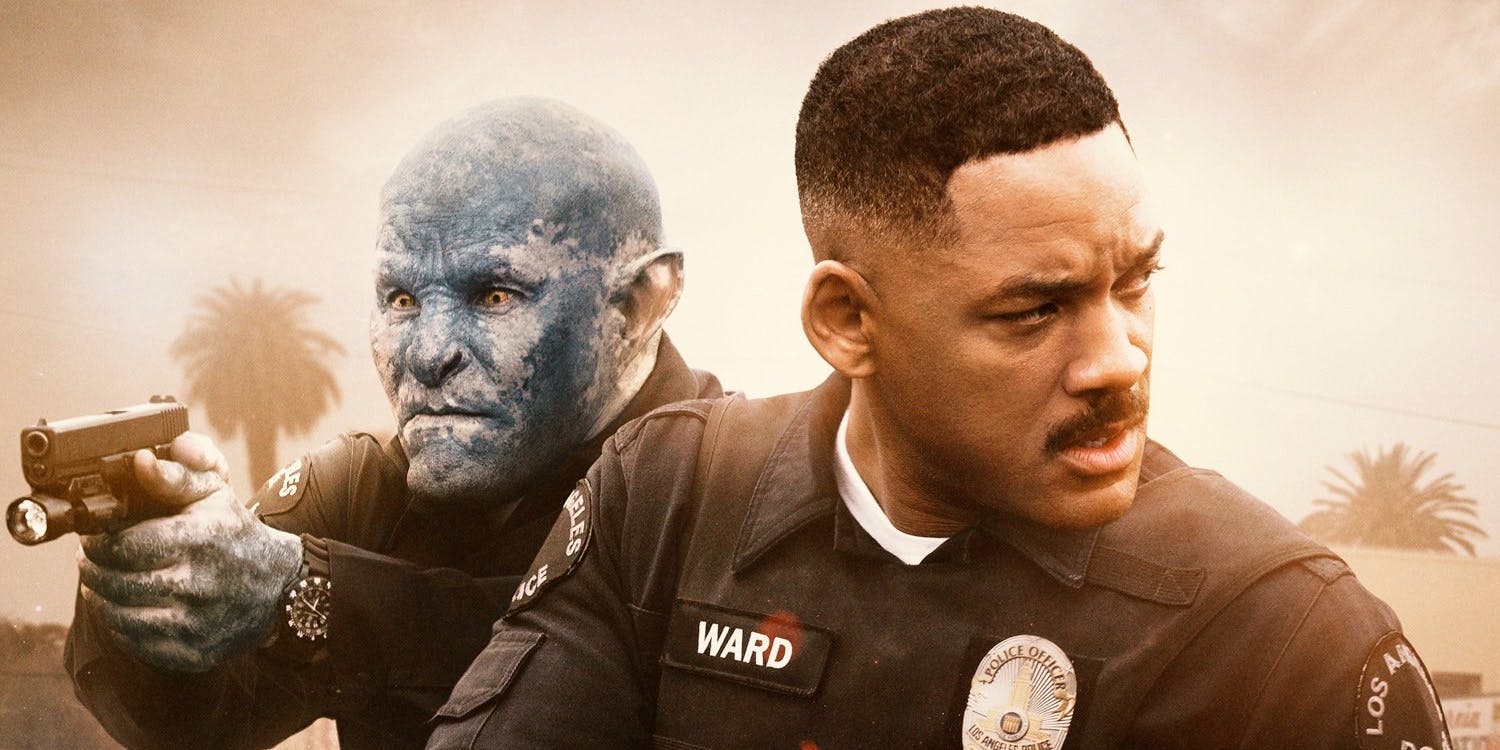Perhaps one of the most divisive films of recent memory is “Bright,” which has landed a wide gamut of Metacritic scores ranging from zero to 90 and a slew of contradicting user reviews on the popular movie website, IMDb. To be fair, there seem to be “bad” movies released every week, some of which are probably even worse than the negative ratings “Bright” has garnered.
What is so different, or offensive, about “Bright”? If it is indeed so bad, how has it become so popular with viewers and led Netflix to green-light a “Bright” sequel? And why are some film critics pleading for viewers not to watch it?
For some, watching Netflix’s “Bright” might feel like watching a two hour “Saturday Night Live” skit where you’re just waiting for someone to break character and laugh, except it never comes. The problem is most likely not with the actors, nor with the execution. It’s actually impressive in many places, filled with exciting hand-to-hand combat scenes and fierce, over-the-top explosions.
The real issue is probably with the scattered storyline, based on a script written by Max Landis, who is perhaps best known for penning movies such as “Chronicle” and “American Ultra.” In fact, “Bright” might have worked better as a comedy, not as an R-rated fantasy crime thriller, considering how some critics have pointed out that it desperately wants to be funny.
Despite all of the issues with “Bright” that critics have expressed, a large fan base has grown for the movie, which now has become a franchise thanks to Netflix’s announcement that there will indeed be a “Bright” sequel. Viewers who disliked it are probably surprised that Netflix would bank on another installment after the first earned such horrible reviews.
Does it matter to Netflix that “Bright” is widely considered by critics to be a bad movie? Not really, it seems. There’s nothing to be worried about when the original was watched by more than 11 million viewers in the first three days, almost the same number of viewers that queued up for the second season of “Stranger Things.” Some financial experts say that even though “Bright” was reviewed so poorly, it still managed to do well with viewers, so the turnout will encourage Netflix to spend more on movies like it.
In the years ahead, these numbers might prove to be more important to moviemakers than critical acclaim, especially since Oscar ratings have been dipping over the past several years. Some have even questioned whether Oscar nods and wins actually translate to bigger profits for studios.
Does it actually pay off to create a critically acclaimed film rather than a viral one? It seems that Hollywood has pondered this question for years as they’ve slowly incorporated the use of algorithms into the filmmaking process. Yep, that’s right. Algorithms. Surprisingly enough, using math to make movies isn’t anything new.
For instance, American businessman Ryan Kavanaugh took algorithm moviemaking for a spin with his company Relativity Media, earning him nearly 90 producer credits so far and almost a Golden Globe nomination for 2010’s “The Fighter.” The power player made big waves by taking some of the uncertainty out of the business, using mathematical formulas to assess the risk of movie investments. Variables such as actor, director and genre are included in the analysis, which is also known as a Monte Carlo simulation.
Although Kavanaugh’s company has struggled over the years, the idea of using math to minimize risk while maximizing profit seems to be here to stay for filmmaking. Consider former statistics professor Vinny Bruzzese, who founded Worldwide Motion Picture Group (which he closed to launch C4). The company evaluated movie scripts by comparing their stories to already-released movies, finding keys to higher ticket sales along the way.
The evaluation examined story elements, plot twists and character traits to determine a movie’s financial success. While all of this innovation might simply be a sign of the industry’s growing relationship with technology, many fear that it will eventually take authentic creativity out of filmmaking and lead to AI-written work, a concept that has already proven to be both hilarious and intense.
Is Netflix, the ultimate data miner of modern movie-watcher statistics and habits, using algorithms to conjure up hits such as “Bright?” Many critics think so. The combination of a bankable star from the past such as Will Smith (revived by the hit “Suicide Squad”) in a buddy cop action flick with a “Lord of the Rings” mythology feels like it was mashed together by computer-surfing well-documented box office numbers from several years ago.
Judging by the company’s decision to go ahead with a sequel, it’s safe to say that their mashup met expectations by drawing enough viewers. It’s a feat that critics worried would happen; curious subscribers tempted by viral reviews would tune in to see what all the commotion was about and they would somehow all add up to validate a “Bright” sequel or other movies like it. Whether that is indeed what happened, or whether the film is actually entertaining or not, the overwhelming fact is that it has left viewers widely divided on its merits.
What’s interesting about the divide between “Bright” lovers and haters is the type of movies they each seem to admire. One “Bright” fan I spoke to lauded the orc cop flick while rolling his eyes about the Golden Globe nominated World War II film “Dunkirk,” which he claimed to be “boring.”
Another viewer I talked to denigrated “Bright” but also blasted “Wonder Woman,” a film that was widely acclaimed by moviegoers and critics and found huge success at the box office. The more people I talk to, the more evidence I see of a growing animosity between viewers who watch content for enrichment purposes versus viewers who have strictly entertainment needs in mind.
In a time when every news headline seems to either be broadcasting the end of the world or touting biased journalism, perhaps the need for escape has grown stronger with viewers, outweighing the need for content to be as closely scrutinized for artistic merit as it was in the past. If “Bright” was indeed cooked up by a computer algorithm, it’s a computation that seems to have nailed the exact recipe for half love, half hate amongst the vocal movie-watching community. Maybe next time they can dial up the love a little while still raking in the same number of viewers.

















